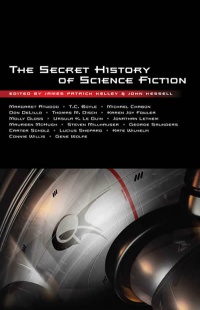 I acquired several of William Tenn’s short story collections a few months ago, at the same time I got his novel Of Men and Monsters, and I’ve just finished with the first one I randomly chose to dive into, The Square Root of Man, published in 1968. This collection contains some of Tenn’s earliest stories, including his very first story from 1946. The other stories are from the late 40’s and the 50’s, with a couple from the 60’s. While some of these stories showed some merit, overall I wasn’t very impressed. But that’s ok because Tenn himself, in his Author’s Note, explains that these stories do not represent his best work:
I acquired several of William Tenn’s short story collections a few months ago, at the same time I got his novel Of Men and Monsters, and I’ve just finished with the first one I randomly chose to dive into, The Square Root of Man, published in 1968. This collection contains some of Tenn’s earliest stories, including his very first story from 1946. The other stories are from the late 40’s and the 50’s, with a couple from the 60’s. While some of these stories showed some merit, overall I wasn’t very impressed. But that’s ok because Tenn himself, in his Author’s Note, explains that these stories do not represent his best work:
Examining this collection, which contains some of my earliest as well as a couple of my latest stories, I was sorely tempted to do complete rewriting jobs. There are stories here written when I was desperately attempting to become a commercial hack, not yet aware that I totally lacked the necessary talent. There are stories here written in the tough, gag-a-minute style then so popular in the magazines and very far indeed from what I have come to realize I do best.
In the end, he decided against rewriting:
Like Huxley, I decided to resist “the temptation to wallow in artistic remorse.” […] I wrote these stories and I was terribly proud of them once: let them be.
What these stories lack in style, some of them make up for (at least partially) with valuable ideas or sensibilities. “Alexander the Bait,” Tenn’s first published story, is about a forward-thinking industrialist who re-ignites interest in the space program through means of a massive deception. “The Jester” is a comical warning about letting machines take over too much of our work for us. “Confusion Cargo” and “Venus Is a Man’s World” take on gender bias, especially the latter which turns gender roles upside down: after men screw up the world with one war too many, there is a Maternal Revolution in which women take over, pass the Male Desuffrage Act, and assume the positions of power previously held by men. “The Last Bounce” resonates with a couple of different tensions; one is the conflict between the desire for adventure and the longing for a stable home life with a family; the other is the contrast between the brave souls who proudly risk their lives in exploration, and the military-style organization that employs them and is all too willing to use them up like replaceable parts in a machine.
Some of the stories, however, have little or no redeeming value at all. “She Only Goes Out at Night” and “My Mother Was a Witch” are quick, shallow tales about vampires and witches which manage to do little except waste a bit of the reader’s time. “Consulate” is a farcical story about two average guys who end up being Earth’s first ambassadors to our galactic neighbors; it’s farce with no sharp edge of satire behind it, which ends up being pretty empty. “The Lemon-Green Spaghetti-Loud Dynamite-Dribble Day” is about a strange day in New York City after the water supply has been spiked with LSD; the main character walks around the city watching everyone tripping. Umm, mildly entertaining, I suppose, but without much of a point.
Many of these stories come across as simply adventure tales going for cheap laughs. Some of them had some depth to them, certainly, but they were largely lacking in the kind of satirical genius I was expecting (which others have attributed to Tenn). There weren’t many really great, memorable lines here, but I did like this comment on bureaucrats and executives:
Anyone with half an ounce of brain would have known there would be trouble. Unfortunately the requirements for an official of the Sagittarian Line include a university degree and a galactic license; nothing about half an ounce of brain.
I’m not going to hold this collection too much against Mr. Tenn, since he himself pointed out some of its deficiencies. But I do hope the other two collections I have turn out to be better.















